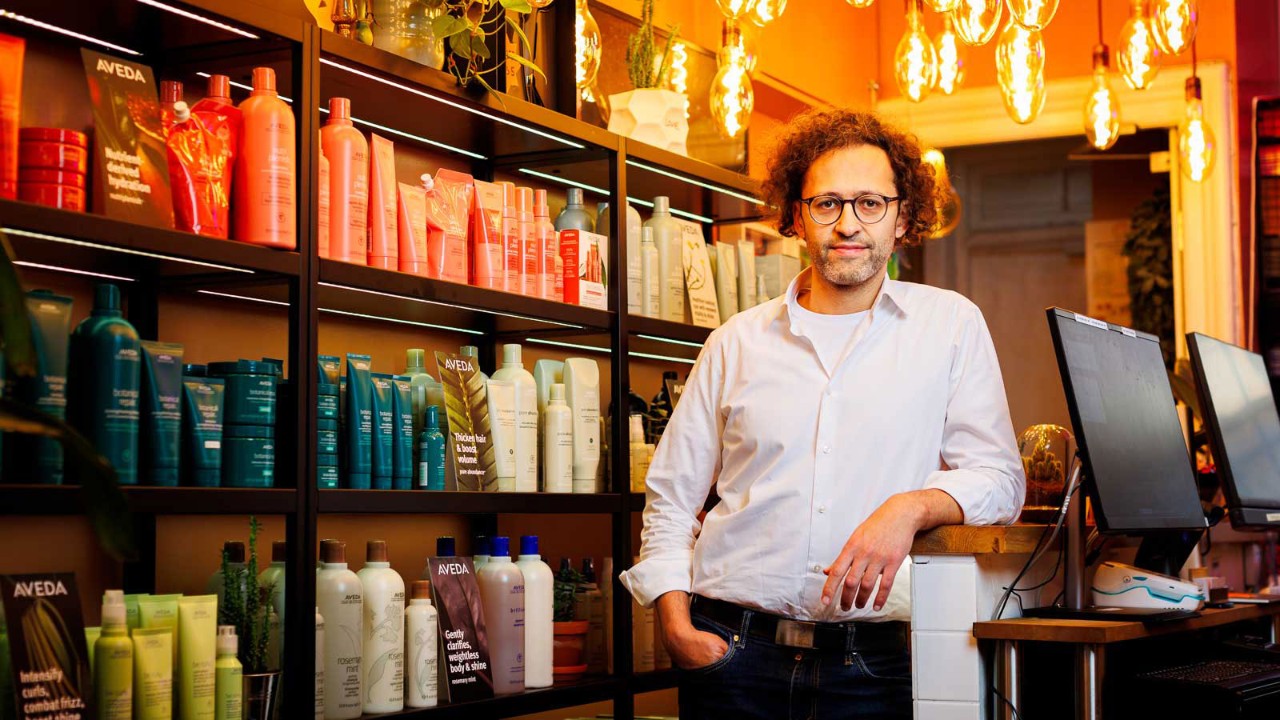
Most accountants working in industry aspire to the role of CFO, but the reality is that only a few will achieve their ambition. Reaching the pinnacle takes a combination of hard work and solid career choices – but at some point a stroke of luck or a leap of faith will most likely be involved. For Michal Koszalkowski FCCA, CFO at Treatwell, a London-based tech company on a mission to ‘digitally revolutionise the hair and beauty community’, the secret was optimism – verging on bravery.
‘I always wanted to be a CFO and I think it’s all about taking the opportunities that are given to you,’ he says. ‘You need an optimistic approach and a belief that you can actually deliver.’
In 2021, when Koszalkowski was approached for his current role, he had built a solid career predominantly at British American Tobacco (BAT) in the Netherlands, London and Paris.
‘If you want a proper career within a multinational company you need to be open to relocation’
With a young family, BAT’s habit of regularly moving people between jurisdictions made for a difficult juggling act – which at one point involved commuting between his family in Amsterdam and his office in Paris – but one Koszalkowski deemed worthwhile.
‘There was one occasion when I was offered a move from the Netherlands to the UK but my wife was expecting our second child, so we decided to stay put,’ he says. ‘If you want a proper career within a multinational company you need to be open to relocation; it’s the only way to reach the level that I managed to achieve. If I had stayed in Poland or the Netherlands, I would not have been on that trajectory.’
About Treatwell
60,000+
Number of salon partners
13
Number of countries Treatwell operates in
Over 8m
Bookings processed each month
Over £3bn
Value of transactions handled in a year
Reaching the heights of CFO with BAT, though, was always a long shot. ‘These big companies are a great training ground for finance professionals but only one person at a time can be CFO,’ Koszalkowski says. ‘However, being CFO of a smaller company was definitely possible.’
Opportunity knocks
When Treatwell came knocking, it did not seem a particularly appealing prospect at first. The company – which runs an online booking platform for hair and beauty salons and offers software as a service (SaaS) to salons to help them manage their business (including bookings, stock, marketing and employee rotas) – had been hit hard by the pandemic, and did not show same level of financial health as the companies that Koszalkowski was used to.
‘When I read the financial statements, my immediate reaction was that I was not sure it was a viable project,’ he recalls.’ At the time, only the 2019 statements were available – the 2020 statements had been delayed by the auditors – and they showed a big loss. The company was going through a change of ownership and new auditors were helping with the finalisation of delayed accounts – a situation that you do not see in the big corporate world too often.’
‘The salons were counting every penny during the pandemic, and our software was not an essential cost’

Taking the role, he agrees, was a risk, but with potentially high rewards. ‘I had a very good discussion with the new owners and investors, and they openly said that their aim was to win Europe. There were guarantees in terms of planned investments, and that made me think that Treatwell was the place for growth. There was serious money behind it.’
Tough times
Treatwell had a particularly difficult pandemic – not only because salons were closed for months at a time, depriving the business of booking commission, but also because it chose to support its partners by heavily discounting software subscription payments. This was right for the loyalty of the salons, as we were in it together, says Koszalkowski, despite the negative impact on the company’s financial performance.
‘The salons were counting every penny, and our software was not an essential expense,’ Koszalkowski explains. ‘It was very tough; the company lost around 25% of its revenue in 2020 and accounted for £13.3m of operating losses in the year.
‘However, 2021 already indicated solid improvements, with revenues growing by almost 50% and operating losses dropping by more than 60%. This was a good sign.’
Since then, Treatwell has bounced back: ‘We have doubled our revenue compared to 2020, significantly increased our workforce and opened a subsidiary in Portugal.’
‘A dry season for investors means we need to pivot our strategy to find a way to fight the competition’
This is an evolving and highly competitive sector, though, which is ripe for consolidation; 70% of salons in the 13 countries Treatwell operates in still use pen and paper for bookings. With just a minority of appointments being made online, there is plenty to win.
‘It’s a competitive landscape and we’re in what I would call a dry season for investors,’ Koszalkowski says. ‘There is no easy money as there was in 2021. But I see that as exciting because it means we need to pivot our strategy to find a way to fight the competition.
‘That’s a learning area for me; at BAT we could compete on price but that was about it in the short term. Here, it’s about how you compete with the product. And the decision-making process is 10 times faster; it might only take a week or two from talking about an idea to its implementation.’
Big ambitions
Treatwell is focusing on a combination of building loyalty and trust, while hoovering up competitors when it can; in 2022 it acquired both the French SaaS provider Wavy and Uala in Italy, and bought 50.1% of Salonized, based in the Netherlands, in 2021.
It has ambitions to be the number-one platform in all of its territories but the key to winning the race, Koszalkowski says, is winning the hearts of consumers. ‘It costs a lot to build brand awareness and consumers are very switchy,’ he says.
‘I’m a CFO, and I’m in an industry that is very forward-looking. This is the perfect combination for me’
Treatwell, he makes clear, is most definitely a tech company and while it is on a completely different scale to BAT, he sees that as an advantage.
‘The revenue here is lower than some of the country revenues at BAT, but that doesn’t matter. What matters is the challenges you deal with, and the things I am learning,’ Koszalkowski says.
‘In a big company, if there’s a merger, the M&A department deals with it, and the tax department deals with tax. Here, I deal with it all. It’s brilliant. I’m a CFO, and I’m in an industry that is very forward-looking. This is the perfect combination for me.’
CV
2021
Group CFO, Treatwell, London
2018
Head of commercial finance, British American Tobacco, London
2016
Global commercial financial controller, British American Tobacco, London
2015
Senior business controller, Staples Europe, Amsterdam
2009
Finance manager, rising to finance controller, Western European region, British American Tobacco, Amsterdam
2007
Auditor, PwC, Amsterdam
2005
Demand planner, rising to regional activity leader, Masterfoods, Warsaw


